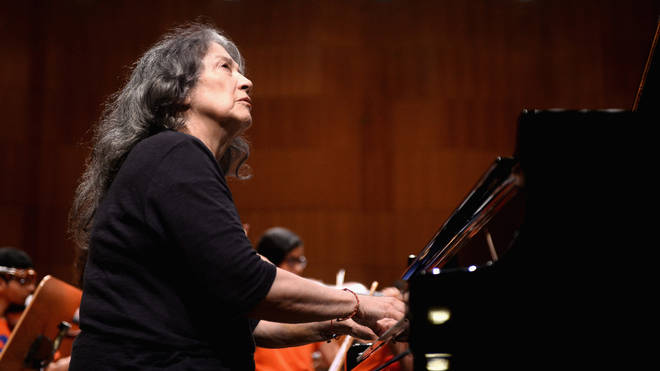It's all about the classical music composers and their works from the last 400 years and much more about music. Hier erfahren Sie alles über die klassischen Komponisten und ihre Meisterwerke der letzten vierhundert Jahre und vieles mehr über Klassische Musik.
Total Pageviews
Sunday, January 29, 2023
Les Miserables: Do you hear the people sing: Sung by 17 Jean Valjeans from around the world
La Vie En Rose
This Guy's In Love With You
Libertango in Berlin Philharmonic (amazing!!!)
Friday, January 27, 2023
Ludwig van Beethoven (1770-1827): Emperor Concerto
Did Mozart Suffer From Any Neurobehavioural Disorder?
by Desiree Ho
Once hailed as Time magazine’s top ten cultural figures of the millennium, Wolfgang Amadeus Mozart (1756-1791) should perhaps also be known as one of the most foul-mouthed classical musicians of all time.
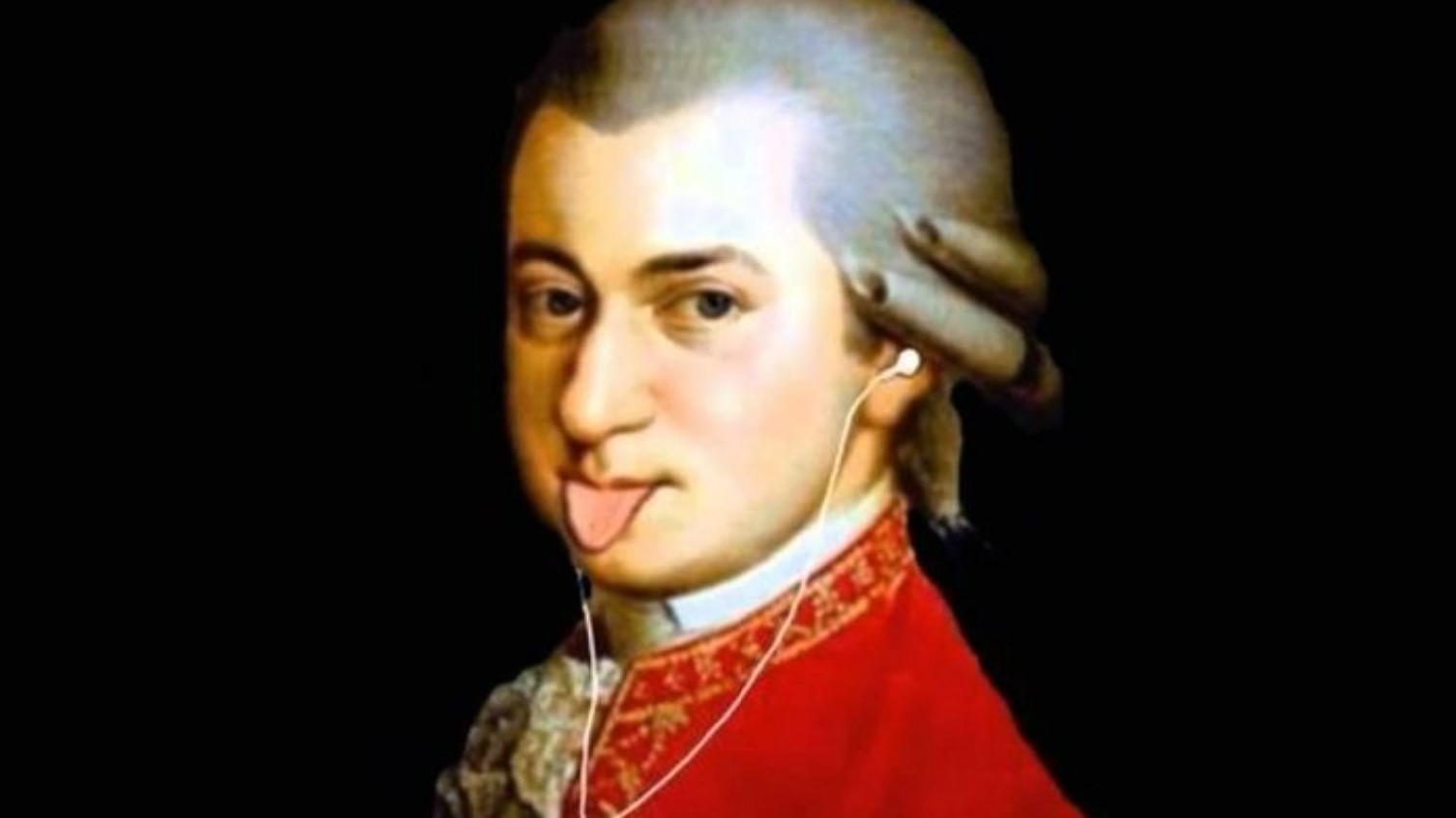
Although the musical genius has passed away for more than 250 years, thanks to the preservation of Mozart’s works, we know for a fact that the prodigy fancied using vulgar language and referring to anal matters in his compositions.
“Kiss my Ass”: Mozart’s Use of Vulgar Language
“Leck mich im Arsch”, which literally translates into “lick my ass” or “kiss my ass” in modern terms, is the title of one of Mozart’s canons which he composed at the age of 26.
Such offensive language was not only evident in his work, but was also prevalent throughout his daily life. Over ten percent of Mozart’s letters are found to contain evidence of scatology, an investigation by Simkin reveals. Scatology is the study of faeces, and in Mozart’s case, it refers to the obsession of obscene language and references to excretory functions (and not in the medical sense). Mozart wrote to his cousin Maria Anna Tekla Mozart on 5 November 1777 saying “I sh*t on your nose, so it runs down your chin”, according to a translation by Spaethling in 2000; and to his father on 17 October 1777, Mozart wrote, “…But I sang a whole different text ‘P.E, o oh you prick, why don’t you kiss my ass…”

In fact, Mozart’s mouth was so foul that experts have suggested that he actually suffered from a complex neurobehavioural disorder called Giles de la Tourette’s Syndrome.
The Tourette’s Syndrome
This is because one of the occasional symptoms of Tourette’s Syndrome is Coprolalia. Coprolalia refers to the involuntary and often compulsive swearing of obscene words or taboo remarks. It comes from the greek word “κόπρος” (kopros), meaning faeces, and “λαλιά” (lalia) from lalein, which means “to talk”. Despite the amount of attention drawn to the condition, it is actually not a necessary symptom required for a Tourette diagnosis. Only about 10% of Tourette patients are reported to suffer from it.
On the contrary, it is the presence of motor and vocal tics (which last for at least one year) that characterise Tourette’s syndrome. Tics are sudden, repetitive movements or sounds that a person makes, usually unconsciously or with only very little control of the muscle groups.

© neuronup.us
Common tics include blinking the eyes very hard, shoulder shrugging, foot stomping, repeated sniffing, repetitive shouting, constant clearing of the throat or grunting. Some tics may even result in self harm, due to head banging or punching one self. Tics can sometimes be worsened when the person is under stress, excitement or anxiety. Patients have described the need to complete a tic or repeatedly carry out the tic in order to decrease the urge or sensation.
Although the exact neuropathology and the cause of the condition is not properly understood, research suggests that it is caused by nerve communication problems in the brain. Disturbance in the balance in neurotransmitters such as dopamine, serotonin and norepinephrine may also play a role in Tourette’s. These include abnormalities in parts of the brain, including the basal ganglia, frontal lobes and cortex.
Question: Did Mozart have a neurological disorder, or was it simply his unique personality?
Some argue that Mozart, as a genius in his own right, simply couldn’t care less about what others thought, and did not have an actual neurobehavioral condition. After all, he lived under the public eye as a child prodigy and was aggravated in life by the enormous demands of his father and society. A bit of strong language was simply a way for him to let out his frustrations, and to demonstrate his inner disrespect of the nobilities at the time.
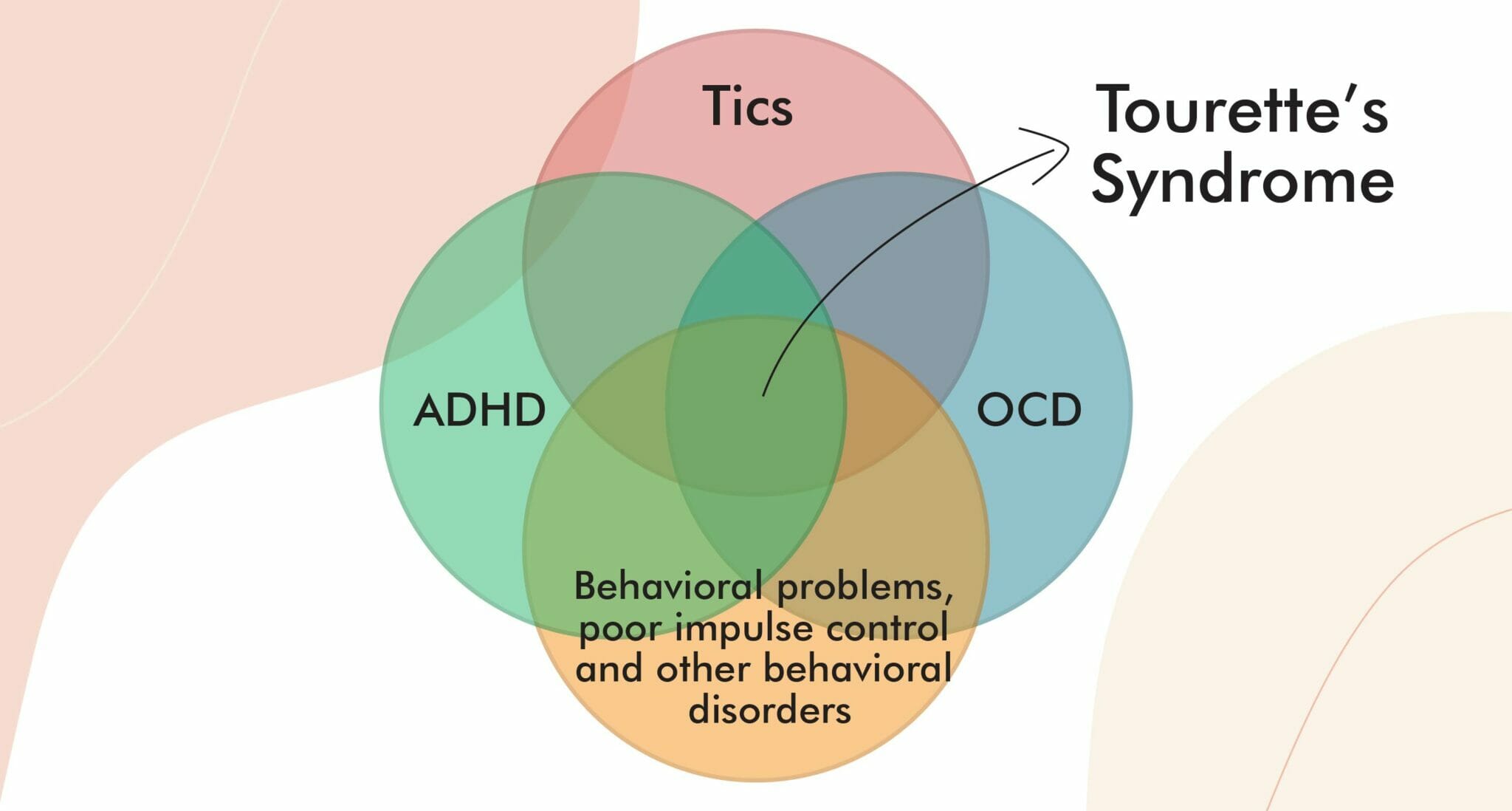
© stamurai.com
Furthermore, the image of a respectable Mozart was probably just a creation of the late 1790s, where society was a little bit more conservative than it is today. It is said that the title of the “Kiss my ass” was changed to “Lasst uns froh sein” when published, meaning, “let’s be happy”. Mozart’s widow, Constanze, is also said to have ensured that Mozart’s letters would not be published immediately upon his death, and that obscene parts of Mozart’s letters would be eliminated in the very first edition.
Some even go on to say that the scatology in Mozart’s letter was simply typical of the conversation styles in southern Mavaria and Salzburg region at that time.
Yet, the case for Mozart’s Tourette syndrome was suggested for the first time at the World Congress of Psychiatry in Vienna in 1983, citing records that show that Mozart was prone to unpredictable and erratic behavior. For example, he had a tendency to trash hotel rooms and refuse to clean. He also had an impressive medical history of possible diseases, leading to the many mysteries surrounding both his life and death.
Nevertheless, the seemingly endless lists of Mozart’s neurobehavioral problems are only speculations. His life was after all very short, especially in today’s terms, so it will remain forever a mystery whether Mozart had a unique personality or an actual neurological disorder.
What we do know however, is that regardless of how foul-mouthed Mozart was, his music will continue to fill our concert halls, shopping malls, and even play on the phone while you are left on hold.
Funniest Shows in Classical Music “All the Right Notes, Not Necessarily in the Right Order”
by Hermione Lai

Igudesman & Joo and Yuja Wang
The ultimate meaning of music, some people say, lies in the sounds themselves and in the ears of the listener, which means it is for the most part highly subjective. When it comes to humor in music, it has to be funny for musical reasons, as music can’t make jokes about anything except itself. Western Classical music and its conventions have a reputation for being very serious, but I want to introduce you to a couple of highly talented musicians who turn such clichés into pure and unadulterated fun.
Let’s get started with the pairing of Igudesman & Joo, alongside special guest Emanuel Ax. The story line is simple; Violinist Igudesman has hired Ax instead of Joo for a performance of Beethoven’s “Spring Sonata,” but somehow had forgotten to tell.
Aleksey Igudesman and Hyung-ki Joo met at the age of twelve at the Yehudi Menuhin School in England, “and became friends over a portion of fish and chips.” Igudesman hails from Leningrad, and he has never won any competitions, “mainly because he has never entered any.” During his studies at the Yehudi Menuhin School, he read the entire plays of Shaw, Wilde, and Chekhov, which didn’t improve his violin playing, but made him feel foolishly somewhat superior to other less intellectually endowed, yet harder practicing, colleagues. He is a violinist, composer, conductor, comedian, filmmaker, actor, writer, poet, and entrepreneur, “but his secret passion is cooking, eating out in luxurious restaurants, and writing reviews on TripAdvisor.” Joo started piano lessons at the age of eight and won a place at the Yehudi Menuhin School two years later. “There, he discovered that he was among geniuses and child prodigies and was convinced he would be kicked out of school.” Inspired by Victor Borge and Dudley Moore, they decided to combine classical music with comedy and popular culture to sidesplitting effects.
Superstar classical performers such as Emanuel Ax, Janine Jansen, Gidon Kremer, Mischa Maisky, Viktoria Mullova, and recently the incredible superstar pianist Yuja Wang have joined Igudesman & Joo. However, they are not just simply presenting music at the highest level, but also performing at a moment in culture, in which an increased desire to confront stereotypes is meeting an increased sensitivity about racial characterizations. Some commentators wrote, “their concert with Ms. Wang was riddled with jokes about her sexual appeal and Chinese heritage that ranged from unpleasant to highly offensive.” To all three performers, the show’s jokes were intentional, “and meant to satirize issues of race and sex in the music industry. Our goal is not to offend but to show the offenses for what they are.” And Yuja Wang added, “The amount of vile, sexist, anonymous (or sometimes not, when it’s in print) comments publicly directed at me and so many others are astonishing. So, I have decided to take control of my own narrative, and have some fun while doing it.”
The music industry, just like the world of athletics, is full of intense competition. Both disciplines require thousands of hours of preparation for competitive performances that may last just a few minutes, or in the case of some athletic events, just a few seconds. However, there is a fundamental difference because athletes love competitions, and musicians hate them. Béla Bartók once famously said, “competitions are for horses, not for artists.” And there is one more fundamental difference. Most athletic events are based on objective measurements, “but in music, all sorts of qualities are being judged, qualities like beauty, sweetness, and loveliness. How can you call somebody who plays beautifully a loser?” Probably one of the most popular and enduring myths in classical music is the idea that an artist takes the stage as an unknown, and leaves it as a star. By now, the chamber music quartet from Hamburg named “Salut Salon” is already a star ensemble, and Vivaldi’s “Summer” from the Four Seasons becomes the acrobatic stage for an intensely funny musical competition.
The funniest jokes work by setting up expectations and then doing something shocking, surprising, unexpected, or even absurd. Leonard Bernstein loved to tell this joke to make his point. An elephant is making fun of a mouse because the mouse was so tiny. So the elephant said, “Huh, look at you, you little shrimp, you peanut, you’re not even as big as my left toenail!” And the mouse said, “Well listen, I’ve been sick.” It is funny because the answer is so unexpected and shocking. You get the same effect when “2CELLOS,” the pairing of two classically trained cellists Luka Šulić and Stjepan Hauser, step onto the stage in historical costume and begin to play for a Baroque audience. Very soon, however, the world of Baroque music is left far behind, and the audience starts to realize that the song is anything but classical. The song turns out to be “Thunderstruck,” the lead single from the 1990 album “The Razoers Edge” by Australian hard rock band AC/DC. The cellists explain, “We love AC/DC as much as Bach, as both are simple and very convincing in what they do.”
We can’t present a blog of humor in and around music without referencing Victor Borge, one of the “funniest performers in classical music ever.” For many decades, Borge combined a blend of comedy and virtuosic pianism with musical satire and verbal spoofs. Born in Copenhagen, Borge arrived penniless in the United States and within a few short years, he became known as a comic actor, composer, pianist, writer, and a director of movies, stage shows, and radio programs. Unbelievably, he appeared in 848 consecutive performances at the Golden Theatre on New York’s Broadway. Humor aside, Borge was a formidable pianist, and his playing was described as “warm, rich, and highly nuanced, achieve through pedal mixtures and the formation of his large, spatula hands with cushions on each fingertip.” His collaboration with Marilyn Mulvey is pure magic, as it takes a humorous look at many operatic and musical stereotypes.
Brett Yang and Eddy Chen are better known collectively as the duo “TwoSet Violin.” They met each other as young teens in a math group, then as the youngest members of a youth orchestra, and later as students at the Queensland Conservatorium Griffith University in Brisbane. Initially, both followed conventional paths and played in the Sydney Symphony Orchestra and the Queensland Symphony Orchestra respectively. In 2016, they resigned from their orchestra jobs and began to host live classical comedy performances. Actually, it started when they posted clips of pop music played on the violin on a dedicated YouTube channel. By 2018, their channel had 100K subscribers, and by 2019 they surpassed 1 million. That number had grown to 3 million in 2021 and currently resides at over 7.5 million subscribers. It’s all about humor and relatable imperfections, and they have even started a clothing line called “TwoSet Apparel.”
Earlier in this blog, if you remember, I said that humor in music has to be funny for musical reasons. And I believe that’s the basic idea behind performances by British conductor, actor, writer, and comedian Rainer Hersch. With shows entitled “All the right notes, not necessarily in the right order,” he has featured in comedy clubs all across Europe and in TV shows around the world. One of his most exciting musical adventures features him as a conductor of his own nine-piece orchestra, and he “connects and corrupts some of the great works of classical music.” As a critic writes, “Whether you are a professor of piano or couldn’t tell a string quartet from a string vest, this is the funniest concert you will ever see.” Hersch also likes to corrupt some of the premier orchestras in the world with his arrangements, as he readily demonstrates in the featured excerpts with the Philharmonia Orchestra. Plenty of humor and excitement on offer in the world of classical music, and I am sure we will see much more of this in the coming years.
Thursday, January 26, 2023
Pianist Martha Argerich cancels performances due to heart-related health condition
By Sophia Alexandra Hall
@sophiassocialsLegendary Argentine pianist, 81-year-old Martha Argerich, has been forced to withdraw from all planned performances.
Widely considered to be one of the greatest pianists of all time, Martha Argerich has had to cancel all upcoming performances due to her declining health.
The 81-year-old Argentine artist is reportedly suffering from issues relating to her heart, as was described in the statement released by Lyon’s Salle Molière, where she was meant to perform earlier this month.
The statement (translated from French) read: “In the aftermath of three concerts given at the Berlin Philharmonic with Daniel Barenboim, despite a precarious state of health due to a heart problem, Martha Argerich, suffering, is no longer able to ensure her next commitments and cancels recitals and tours until further notice.”
Argerich was able to perform with long-time friend and musical partner, Daniel Barenboim, with the Berlin Philharmonic five days prior to the planned Lyon recital.
With Barenboim also suffering from health issues in recent months, the Berlin concert on 7 January was a heartwarming night of music, with Argerich playing the Schumann piano concerto while he conducted. Notably, it was the first time the pair had performed together with the Berlin Philharmonic.
At the same concert, the duo performed a movement from Bizet’s Children’s Games (for piano four hands) titled, ‘Hubby Wife’.
This isn’t the first time Argerich has taken time off from performing due to health issues. In 1990, Argerich was diagnosed with a malignant melanoma. Following treatment, her cancer later went into remission however, recurred again in 1995 when it metastasized to her lungs, pancreas, liver, brain, and lymph nodes.
During Argerich’s second battle with cancer, a piece of her lung was removed during an experimental treatment. Five years after the surgery, she told the New York Times in a rare interview: “I was afraid of my own body. I was afraid of myself for the first time; afraid to be me.”
Following her treatment at the John Wayne Cancer Institute in Santa Monica, she was in remission again by 2000.
Born in Buenos Aires, Argentina in 1941, Argerich took up the piano aged five, and by 16 years old was taking the international world of classical music by storm.
Within just three weeks, the teenager went on to win both the Geneva International Music Competition and the Ferruccio Busoni International Competition, and eight years later achieved global recognition as the winner of the 7th International Chopin Piano Competition in Warsaw.
Argerich has built up a remarkable career as an unparalleled recording artist and concert pianist, with an impressive specialism in the virtuoso piano literature of the 19th and 20th centuries.
Classic FM wishes Martha Argerich a restful and rapid recovery.
John Williams makes history as oldest person to be nominated for an Academy Award
By Maddy Shaw Roberts, Classic FM
The movie music maestro received his 53rd Oscar nomination for his score to Steven Spielberg’s ‘The Fabelmans’, which is also nominated for Best Picture.
At 90 years old, John Williams has once again made Oscars history, becoming the oldest person to be nominated for a competitive Academy Award.
The movie music legend’s score for Steven Spielberg’s The Fabelmans is nominated for the Best Original Score award in 2023, alongside Babylon, All Quiet on the Western Front, Everything Everywhere All at Once, and The Banshees of Inisherin.
Three people previously held the record for oldest nominee at 89 years old: Call Me by Your Name screenwriter James Ivory, Ma Rainey’s Black Bottom costume designer Ann Roth, and Faces Places director Agnès Varda.
His nomination for The Fabelmans, which is also nominated for Best Picture, also means Williams has broken his own record for the most Oscar nods for a living person, with a total of 53 nominations. The film composer is now also the only person to ever be nominated in seven different decades.
If he wins, Williams – who will have turned 91 by this year’s ceremony on 13 March – will make history as the oldest winner of an Oscar according to the LA Times.
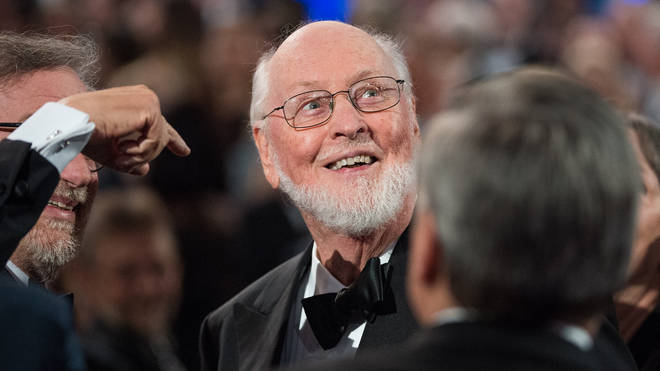
Currently decorated with five Oscar wins, Williams’ last Best Original Score win was in 1993 for Schindler’s List. Previous winning scores were Fiddler on the Roof (1971), Jaws (1975), Star Wars (1977) and E.T. the Extra-Terrestrial (1982).
The Fabelmans marks 50 years of friendship and collaboration between Williams and Spielberg, who thanked the composer for writing the film’s score “as his most personal gift to me… [and] my parents”.
Last week, the director confirmed his involvement in a new documentary on the life of John Williams, which could yet be the duo’s swansong.
Spielberg spoke about their shared love of the great sound of an orchestra, and the importance of that soundworld in their films, in an interview with the LA Times in 2012.
“Johnny and I have been very Luddite about including full orchestras and full choirs in most of our films,” said Spielberg. “I love orchestras. I never leave the scoring sessions. It’s my vacation from the movie I just made.”
In a special 90th birthday interview for Classic FM in 2022, Williams bashfully said of his immense contributions to the film world: “What little I can possibly contribute with my little scores, is nothing compared to the work of Bach or Haydn, Mozart, Beethoven, any of the great colossal geniuses that developed the music that in our Western sphere, we hold so dear to our hearts as one of the foundations of our culture.”
Spielberg is also nominated for Best Director for The Fabelmans in the 2023 Academy Awards. Elsewhere, Tár is nominated for Best Picture, with a Best Actress nomination for Cate Blanchett in the lead role.
9-year-old violin prodigy plays Max Richter’s thrilling take on Vivaldi ‘Summer’ in talent show finale
By Maddy Shaw Roberts
Here’s some Vivaldi-Richter violin magic, played by the youngest finalist of French TV talent show ‘Prodiges’, to blow you away.
In December, 9-year-old violinist Sora Lavorgna made it down to the finals of Prodiges, a French TV talent show judged by cello virtuoso Gautier Capuçon, along with a star opera singer and dancer.
The competition looks for the most promising young talents in three different categories, singing, instrument and dance, all performing to the sound of great works of classical music.
In her final performance, the young French Japanese violinist played contemporary classical composer Max Richter’s recomposition and reinterpretation of the talent show favourite ‘Summer’ from Vivaldi’s collection of Baroque concertos The Four Seasons.
‘Summer 1’ is all intricate ostinato and soaring solo violin lines, making it the perfect showpiece for any high-stakes competition final. Sora gave a stunning performance, displaying a warm vibrato and tone, and incredible musicianship for a player of her age.
During the competition, which also saw her play the Tchaikovsky Violin Concerto, Capuçon told her: “You impressed us, you show incredible concentration and determination for your nine years.”
Prodiges showcases 15 virtuosos aged nine to 16, whose performances are all accompanied by the Divertimento orchestra, under the baton of conductor Zahia Ziouani.
The jury is made up of three leading musical figures: Capuçon, prima ballerina and choreographer Marie-Claude Pietragalla, and soprano Julie Fuchs.
For this ninth season of Prodiges, hosted by Faustine Bollaert, the final trophy was taken by 12-year-old ballet dancer Sacha, who also won the study grant of 10,000 euros. Sacha was told by Pietragalla: “You are dance-incarnate, you make me want to go dancing. You are beautiful, radiant, you have beautiful footwork, I would like to follow you.”
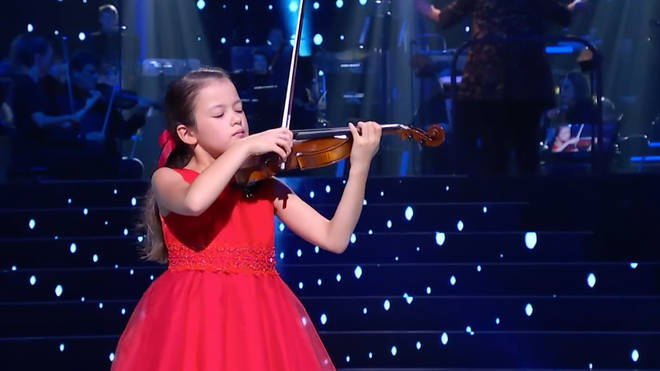
Sora, who at nine years old was the youngest contestant in the entire competition, began playing the violin at age four at the Cannes Conservatory.
During the show, she explained that she practises the violin two hours a day and prior to Prodiges, had won the prestigious Arthur Grumiaux International Violin Competition in Belgium.
We look forward to seeing what else is in store for this brilliant young player.
Prodiges has not only put classical music front and centre on a major French TV channel, but has also produced some stars of the future and major recording contracts.
The debut album of violin and cello star Camille Berthollet, the 2014 winner of the show, went gold on Warner Classics in less than two months. She has since released six string duo albums alongside her sister, Julie Berthollet, with whom she also performed at Classic FM Live in 2021.
